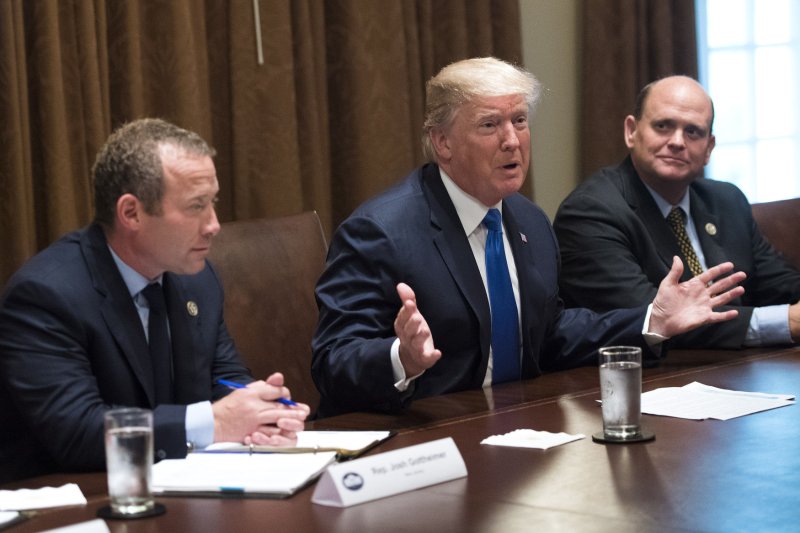Sept. 13 (UPI) -- After a bipartisan meeting with members of the House of Representatives about tax reform Wednesday, President Donald Trump said it's possible wealthy Americans may have to pay more in taxes.
The president said the tax reform plan the group drafted would include the largest decrease in taxes in history for the middle class, but perhaps not for the rich.















